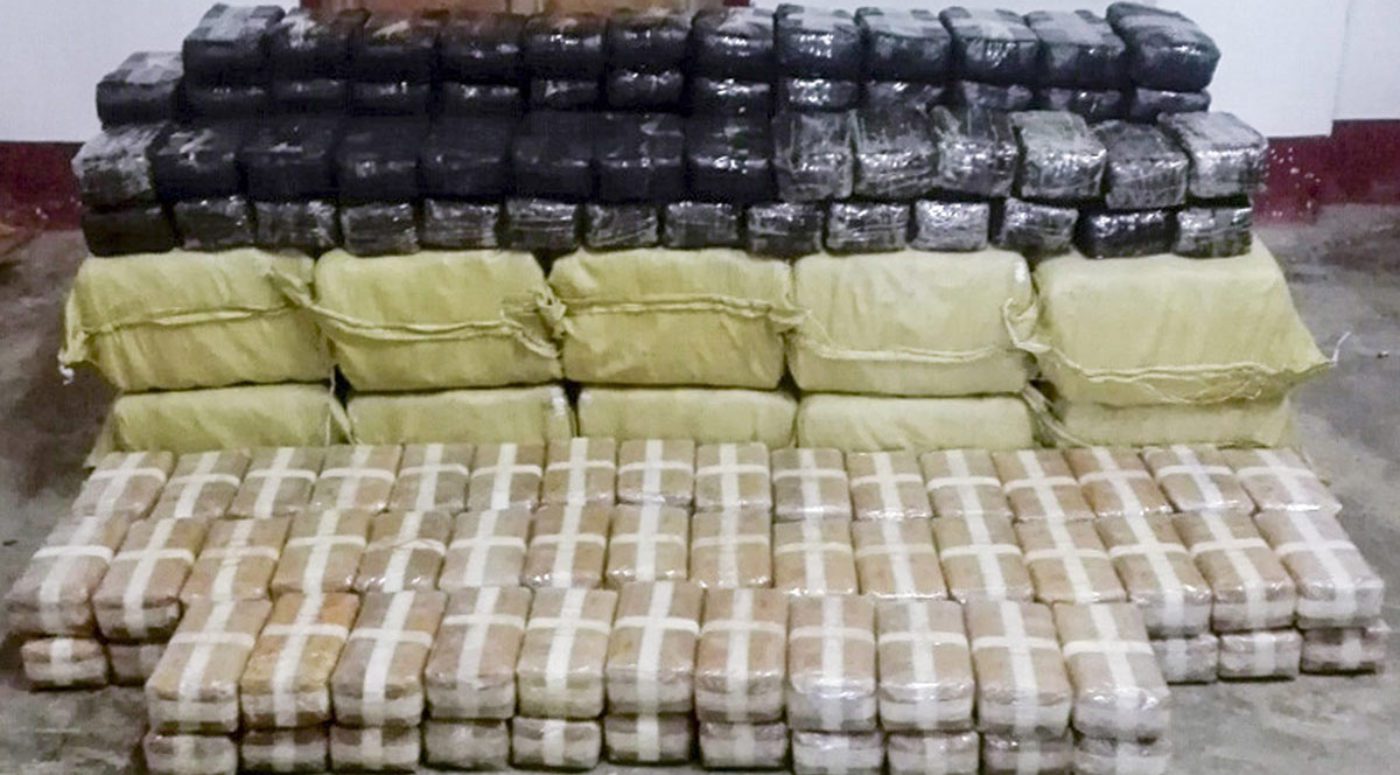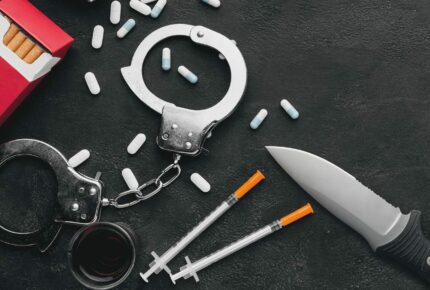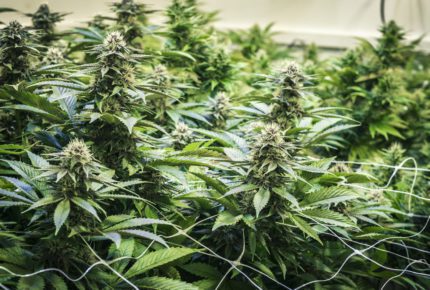

The production of controlled drugs is a serious criminal offence, carrying significant legal consequences for those found guilty. If you or someone you know is facing a production of controlled drugs charge for the first time, it is essential to gain a solid understanding of the offence, sentencing outcomes, and available defences. In this article, we aim to shed light on this complex legal matter under English law, providing clarity on the definition of the offence, sharing illustrative examples, outlining potential sentencing outcomes, and exploring possible defences that can be pursued.
What is the offence of production of controlled drugs?
The offence of production of controlled drugs in the UK is defined in Section 4(2)(a) of the Misuse of Drugs Act 1971. It is an offence to produce a controlled drug, or to be concerned in the production of such a drug.
To secure a conviction for production of controlled drugs, the prosecution must prove the following elements:
- That a controlled drug was produced.
- That the accused was involved in the production of the controlled drug.
The accused does not need to have directly produced the controlled drug themselves. They can be found guilty of production if they were involved in any way, such as:
- Providing the premises or equipment needed to produce the drug.
- Assisting with the production process.
- Funding the production of the drug.
- Transporting the drug to or from the production site.
The production of controlled drugs is a serious offence, and can result in a maximum sentence of life imprisonment. However, the actual sentence that is imposed will depend on a number of factors, including the type and quantity of drugs that were produced, the role that the offender played in the production, and the offender’s previous criminal record.
What are some examples of production of controlled drugs?
Here are some examples of the offence of production of controlled drugs in the UK:
- Growing cannabis plants
- Manufacturing cocaine
- Producing MDMA (ecstasy)
- Making amphetamine
- Cooking heroin
- Producing fentanyl
- Operating a methamphetamine lab
Note that this is not an exhaustive list, and the production of any controlled drug is an offence in the UK.
What happens if you are suspected of production of controlled drugs in the UK?
If you are suspected of production of controlled drugs in the UK, the police and potentially other specialist teams or agencies (such as drugs squads) are highly likely to get involved. Here is an outline of what is likely to happen:
- Investigation: The police and other agencies will start an investigation to gather evidence, such as electronic records, witness statements, and other relevant information. People you know may be contacted and asked questions about you with or without your knowledge.
- Arrest: If there is enough evidence or reasonable grounds to suspect you were involved, you may be arrested and taken into custody for questioning. This is likely to be at the police station, but they may also ask you questions in your home or at work.
- Questioning: The police will ask you about your alleged involvement in the suspected crime, as well as other things like where you were on certain days, your job, your relationships, and more. While in custody, you have the right to remain silent and to have a lawyer present.
- Search and Seizure: The police may search your home, workplace, electronic devices, and other personal or professional belongings for evidence. They may also seize digital devices for further examination (and it may not be clear when, if ever, you will get these devices back).
- Bail, Investigation, or Detention: Depending on the circumstances, you may be released on bail, released under investigation, or detained while further investigations are carried out. If released on bail, you may be required to follow certain conditions, such as staying away from certain places or reporting to the police at certain times.
- Charging Decision: After the investigation is finished, the police will send the case to the Crown Prosecution Service (CPS) to decide whether to press charges. The CPS will look at the evidence and decide if there is a strong enough case to warrant spending public money on a prosecution.
- Court Proceedings: If charges are filed, you will be summoned to court to answer the allegations. It is highly recommended that you seek legal representation to avoid the risk of incriminating yourself.
- Possible Outcomes: If found guilty, you may face a variety of penalties, including imprisonment, fines, community service orders, or restraining orders, depending on how serious the offence was and other factors.
- Criminal Record: A conviction will result in a criminal record, which can have far-reaching consequences, such as making it difficult to get a job or travel to certain countries.
What is the sentence for production of controlled drugs in the UK?
The sentence for production of controlled drugs in the UK is a maximum of life imprisonment. However, the actual sentence that is imposed will depend on a number of factors, including the type and quantity of drugs that were produced, the role that the offender played in the production, and the offender’s previous criminal record.
Aggravating factors that may increase the severity of the sentence include:
- The production of a large quantity of drugs
- The production of a particularly dangerous drug, such as heroin or fentanyl
- The involvement of children or vulnerable people in the production process
- The use of violence or weapons to protect the production operation
- The offender’s previous convictions for drug-related offences
Mitigating factors that may reduce the severity of the sentence include:
- The offender’s age and maturity
- The offender’s mental health
- The offender’s remorse and cooperation with the authorities
- The offender’s efforts to rehabilitate themselves
- The offender’s contribution to society
The judge will weigh up the aggravating and mitigating factors in each case to determine the appropriate sentence.
Here are some examples of how aggravating and mitigating factors might affect the sentence for production of controlled drugs:
- A first-time offender who is caught growing a small number of cannabis plants for personal use is likely to receive a less severe sentence than a repeat offender who is caught manufacturing a large quantity of heroin for commercial sale.
- An offender who shows remorse and cooperation with the authorities is likely to receive a less severe sentence than an offender who denies their involvement in the crime and obstructs the investigation.
- An offender who has a mental health condition and was not fully aware of the consequences of their actions is likely to receive a less severe sentence than an offender who was acting deliberately and knowingly.
If you are facing charges of production of controlled drugs, it is important to seek legal advice from a qualified and experienced criminal defence lawyer as soon as possible. A lawyer can help you to understand your charges and your rights, and can represent you in court if necessary (they might even be able to get the case dropped before it reaches that stage).
Will I go to prison if it is my first time production of controlled drugs?
The likelihood of someone going to prison for a first-time offence of production of a controlled drug in the UK depends on a number of factors, including the type and quantity of drugs that were produced, the role that the offender played in the production, and the offender’s previous criminal record.
In general, first-time offenders are less likely to be sentenced to prison than repeat offenders. However, the production of controlled drugs is a serious offence, and even first-time offenders can be sentenced to prison, especially if the circumstances of the offence are serious.
For example, a first-time offender who is caught manufacturing a large quantity of heroin for commercial sale is more likely to be sentenced to prison than a first-time offender who is caught growing a small number of cannabis plants for personal use.
Other factors that may increase the likelihood of a prison sentence include:
- The use of violence or weapons to protect the production operation
- The involvement of children or vulnerable people in the production process
- The offender’s previous convictions for drug-related offences
Where to get further help
Facing a charge or prosecution for the production of a controlled drug? If so, you are not alone. The team at Stuart Miller Solicitors have decades of combined experience fighting for the rights of defendants in these cases and are skilled at navigating the complexities of the criminal justice system. For more information about how we can help, get in touch with our team today.
OUR COMMITMENTS TO YOU:
-
Responsive
A legal expert will consult you within 24 hours of making an enquiry.
-
Empathetic
We will always treat you with trust, understanding and respect.
-
Specialised
Your case will be handled by an expert who specialises in your type of offence.
-
Proactive
We will take early action to end proceedings as soon as it is practically and legally possible to do so.
-
Engaged
You will be kept updated on your case at all times. We will provide a named contact available to answer your questions.
-
Caring
We understand this is a difficult and stressful time for you and your family. Our team will support you every step of the way.
-
Tenacious
We will never give up on your case. We fight tirelessly to get you the best possible outcome.

